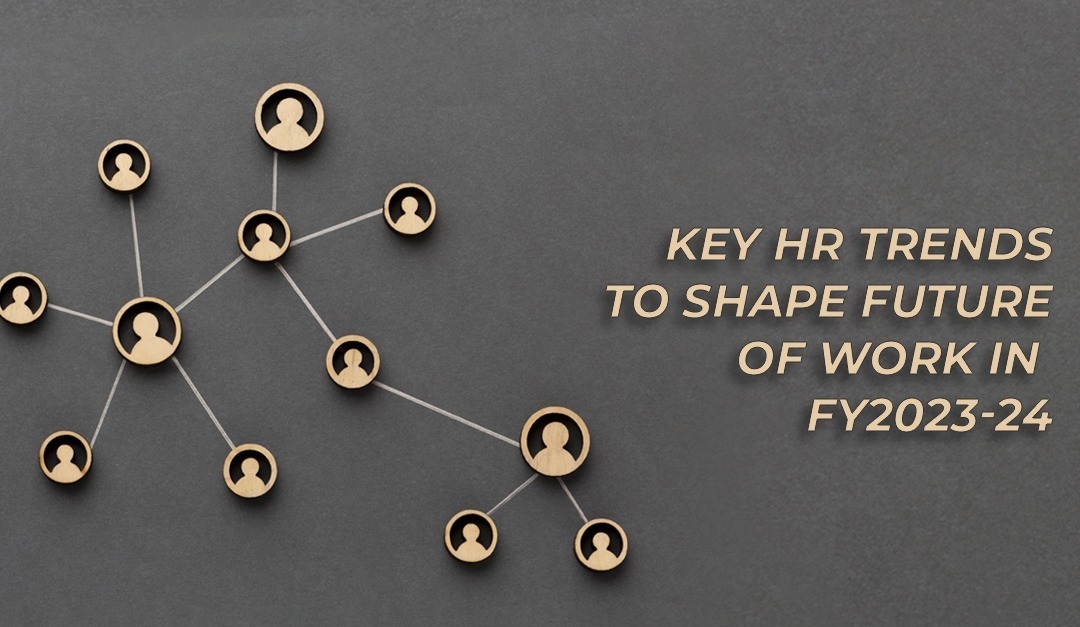It’s 2023, more than three years since the Covid-19 pandemic unleased havoc across the world. Yet, organisations across the world haven’t gone back to how they worked pre-pandemic, and these changes seem permanent given the way the world has adapted to them.
In this context, the role of the human resource departments come to fore as they have been the drivers of change in the working world. Right from facilitating the transition from office-based to home-based working, employee support and, eventually, working out hybrid mode of work – the HR teams have been troopers to help the employees navigate seamlessly. Along with these added responsibilities, they have also had to take care of skilling and training the workforce, facilitating means to close skill gaps, make room for DEI (diversity, equity and inclusion) and address generational differences.
Going forward, my fellow HR professionals will have to keep their ears to the ground and ensure they keep up pace with the dynamic times. Several key HR trends will shape the workplaces in the coming financial year, with some of them already in motion.
Augmenting upskilling/multiskilling to build competency-driven & future-ready organisations
Upskilling and multiskilling employees and leaders have always been the key to sustaining and navigating rapid technological advancements. For instance, BCG and Emsi Burning Glass reported a magnanimous skills disruption being underway and stated that more than a quarter of the top 20 skills in job postings for an average job have changed since 2016.
Prioritising qualitative upskilling will aid in developing a continuous learning culture, which in turn will keep employees engaged and foster a positive work environment that attracts top talent. This will also require a lot of learning and un-learning, which will become equal anchors for employee development. Unlearning will facilitate the learning process and improve their decision-making power. Taking a cue from a popular proverb – Good leaders learn while great leaders unlearn – leaders who instill unlearning in their DNA can quickly adopt the company’s prospects and work backwards by asking these questions – who stays, what changes and what goes.
The greater role of data, people analytics and automation
There is no doubt that data, coupled with automation and people analytics, will play a more substantial role across departments, going forward. For instance, in the survey published by Analytics Insight, around 87% of respondents affirmed the importance of people analytics, while 22% have already adopted it.
Apart from streamlining the HR responsibilities and roles, data and analytics will help to identify talents and skill gaps and improve employee engagement. The HR departments have to take ownership of algorithmic management, ensuring fairness, communication and inclusion. They should also conduct regular audits of the data fed into the system to eradicate biases.
Focus on holistic employee well-being and employee communication
Every person, at some point in their careers, has been impacted by the negative effects of work-related stress. Research by Workvivo also quoted a staggering 98% of HR professionals reported feeling burned out at some point in the past six months. There is no major threat to the organisation’s continuity than unsatisfied employees. Hence, focus on holistic employee well-being is one of the key trends this financial year. HR professionals should adopt a holistic and progressive approach focused on mental, physical and financial well-being. Talking with employees and establishing a two-way communication channel between the leaders and employees is another smooth way to ensure the fruitful continuity of the organisation.
Driving flexibility in the ecosystem to support business and hybrid work culture
The pandemic has permanently changed the working conditions. In the current context, flexibility does not mean working remotely but the ability to choose their work schedule – meaning working for three or four days a week and longer hours. Hybrid work culture, on the other hand, is a system where employees do not have to go to the office or onsite for all five days a week.
According to a McKinsey report, the pandemic has accelerated the digital transformation across organisations, and interestingly, employees have also quickly adapted to the change. LinkedIn data shows an increase in the number of remote jobs posted from around 20% to 50%. It also illustrates that resistance to any sort of flexible working will raise questions towards the competitive attitude of the business house.
Hence, work flexibility is desired by all segments of workers. For knowledge workers opting for flexible working, HRs should make a culture shift that entails respect for work-life boundaries and trust in their employees to complete the job outside a traditional 9-5 workday. Employers also should set guardrails to promote healthy work-life balance.
On the other hand, employees are also increasingly willing to adopt hybrid work culture. But, all is not good. A study conducted by Nature Human Behaviour found that the collaboration of Microsoft employees has declined by 25% and become more isolated in a remote setting compared with pre-Covid levels.
Hybrid or flexible work culture is not just a benefit in a tight labour market but an essential component of modern work culture. In fact, 64% of employees would consider quitting if they had to return to the office full-time. Therefore, the HR departments have to educate themselves and managers to overcome proximity biases.
Addressing generational differentiation in employee segments
Addressing the needs of a multigenerational workforce is one of the major challenges for any HRs. Streamlining communication for different segments can help the HR department build a bridge with employees from each generation. Targeted messaging campaigns for a discreet employee population based on engagement data will help to provide customised experiences to everyone.
Sense of purpose to become a key element in attracting and retaining talent
One of the fundamental shifts witnessed in the past years is the increased importance attached to the sense of purpose in today’s organisations. Changing psychological contracts and demographics are key factors driving the change in employee mindset.
A McKinsey study found 82% of employees believe it’s important for their company to have a purpose that shapes their strategies, engages customers and community and inspires them. Over two-thirds of respondents believe that a company’s sense of purpose is defined by their work. Meanwhile, 93% of the respondents will likely recommend the companies, only if its purpose inspires them to their associates. In 2023, HR is expected to help shape a company’s purpose and connect it to the environmental, corporate and social goals. A clear purpose will help to engage existing talent, increase productivity and fill the $8.5 trillion worth of talent gap in 2030.
All of these trends can prove to be a shot in the arm for companies. They can help HRs steer their entities in the right direction in terms of decision-making and setting the right expectations.
Prashant Choubey in Voices, Business, TOI








